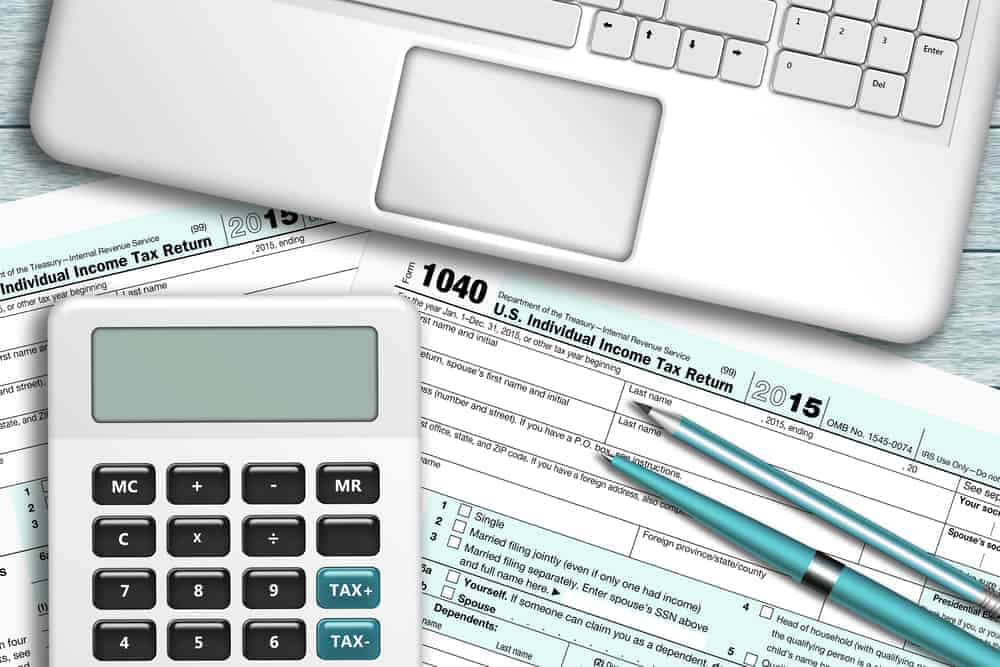Tax Refund vs Tax Return: What’s the Difference?
THIS POST MAY CONTAIN AFFILIATE LINKS. MEANING I RECEIVE COMMISSIONS FOR PURCHASES MADE THROUGH THOSE LINKS, AT NO COST TO YOU. PLEASE READ MY DISCLOSURE FOR MORE INFO.
When tax time rolls around, many people are unsure of the difference between a tax refund and a tax return. Both of these terms are commonly used, but they mean different things.
A tax refund is money that you get back from the government because you paid more in taxes than you owed.
A tax return is the form that you file with the government to report your income and tax deductions. In this blog post, we will discuss the differences between a tax refund and a tax return in more detail!
What is a Tax Return
A tax return is a document that you file with the IRS to report your income and claim any tax deductions or tax credits that you may be eligible for. When you file your return, the IRS will use the information on your tax return to calculate how much tax you owe. If you have overpaid taxes throughout the year, you will receive a tax refund.
What is a Tax Refund
A tax refund is a payment from the IRS that you receive if you have overpaid taxes throughout the year. The amount of your tax refund will be based on the amount of tax you overpaid and the size of your tax refundable credits.
How to File Your Tax Return
There are several ways that you can file your return and get your tax refund back from the IRS:
You can file your taxes yourself using paper forms or online tax software, such as Turbotax. If you choose this option, make sure that you have access to all of the tax documents that you need, such as your W2 form.
Alternatively, you can have a tax professional file and prepare your taxes for you. Though you’ll want to get on their schedule before tax season begins as they likely will book out pretty fast.
Either way you can file your taxes electronically using the IRS e-file system.
How a Tax Refund is Different from a Tax Return
You have to file a tax return to determine if you need to pay additional taxes or if you’ll be receiving a tax refund.
A tax refund is a sum of money that the government pays back to taxpayers who have overpaid their taxes.
When you file your income tax return, the Internal Revenue Service (IRS) will determine whether you’ve overpaid your taxes and are eligible for a tax refund.
If you have overpaid your taxes, the IRS will issue a tax refund to you.
The amount of your refund may depend on how much tax you’ve overpaid and when you file your income tax return.
A tax return is an information document that taxpayers submit to the IRS each year.

How Many Returns Do You Have to File Each Year
Taxpayers are required to file tax returns every tax year.
A tax year is the 12-month period for which income tax must be paid or reported.
There are different tax years that taxpayers may use, depending on their business structures and personal circumstances.
The three main types of tax years include fiscal years, calendar years, and tax years.
Why Do Some People Pay Quarterly Taxes?
Some taxpayers may be required to pay taxes on a quarterly basis.
This means that these taxpayers must submit tax payments every three months, instead of once a year when they file their annual return.
The reason some people have to pay quarterly taxes is because they are self-employed or have income from other sources such as interest, dividends, capital gains, and pensions.
These tax payments are made in advance of tax day.
How to Get Your Refund Faster
If you’re wondering how to get your tax refund faster, the answer is relatively simple: file electronically and request it be a direct deposit into your bank account.
When you file your tax return electronically, the IRS will process it faster than if you had mailed in a paper return.
And when you have your refund deposited directly into your bank account, you’ll get it sooner than if you had it mailed to you.
You can also check your refund status by using the IRS website.
Bottom Line
Tax refunds are tax payments that the government issues to taxpayers who have overpaid their taxes.
A tax return is the tax document that employers and employees submit each year.
When you file your tax return, the IRS will determine whether you’ve overpaid your taxes or if you need to pay additional income tax.
You can check the status of tax refunds on the IRS website.
If you’d like to get tax help, there are a number of tax preparation companies that offer tax services and tax advice for taxpayers.



